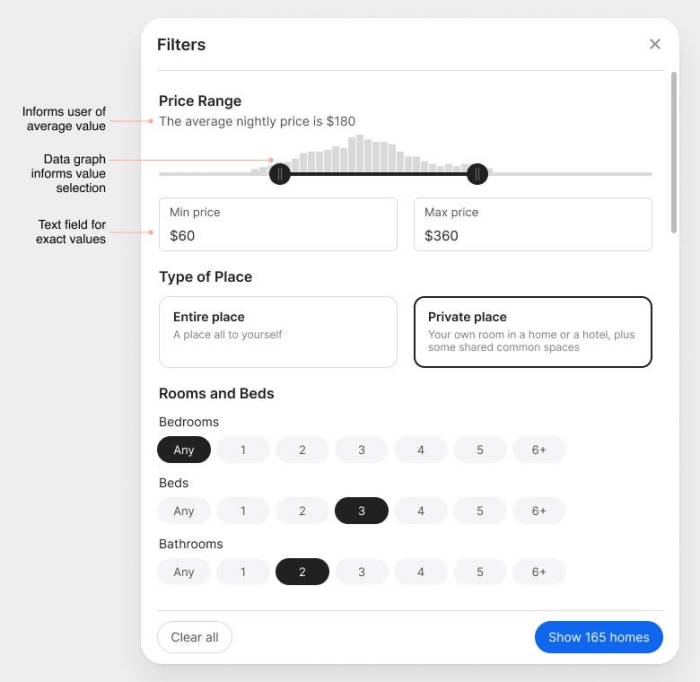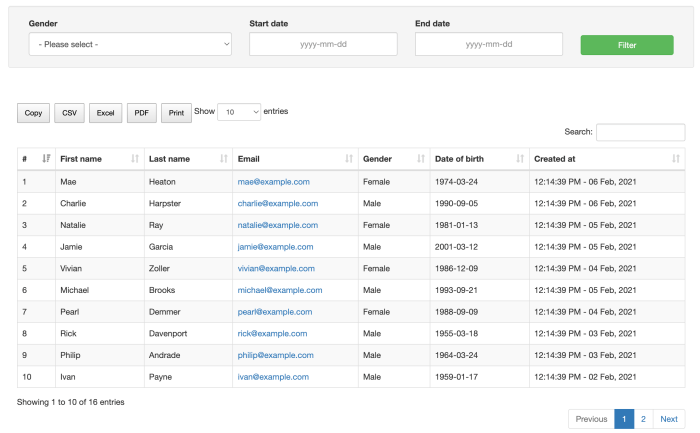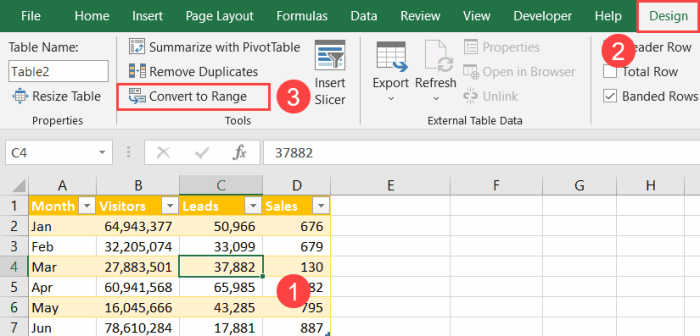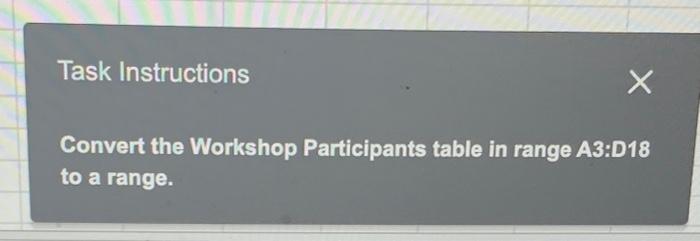Clear all filters from the workshop participants table in range – In the realm of data management, the ability to effectively filter and manipulate tables is paramount. Among the various filtering options available, the concept of clearing all filters holds significant importance, particularly in the context of workshop participant tables. This guide delves into the intricacies of clearing all filters from a workshop participants table within a specified range, providing a comprehensive understanding of the process and its implications.
The workshop participants table serves as a central repository for storing and managing data related to individuals attending a workshop. It typically comprises columns such as participant ID, name, affiliation, and contact information. Filters play a crucial role in organizing and retrieving specific data from the table, enabling users to narrow down the results based on various criteria.
However, situations may arise where it becomes necessary to remove all applied filters and revert to the original unfiltered state of the table.
Workshop Participants Table

The workshop participants table is a crucial component of any workshop management system. It contains essential information about the participants, including their names, contact details, and workshop preferences.
The structure of the table typically includes the following columns:
- Participant ID
- Name
- Email Address
- Phone Number
- Organization
- Workshop Preferences
The purpose of the workshop participants table is to provide a centralized repository of information about the participants. This information can be used to:
- Manage workshop attendance
- Send out workshop materials
- Track participant progress
- Evaluate workshop effectiveness
Here is an example of a workshop participants table with sample data:
| Participant ID | Name | Email Address | Phone Number | Organization | Workshop Preferences |
|---|---|---|---|---|---|
| 1 | John Smith | [email protected] | (555) 123-4567 | Example Corporation | Workshop on Data Analysis |
| 2 | Jane Doe | [email protected] | (555) 234-5678 | Example University | Workshop on Machine Learning |
| 3 | Bob Jones | [email protected] | (555) 345-6789 | Example Consulting | Workshop on Project Management |
Clear All Filters

Filters are a powerful tool for narrowing down the data in a table. However, there may be times when you want to remove all filters and see all of the data in the table.
Clearing all filters is a simple process. Here are the steps:
- Click on the “Clear All Filters” button.
- The table will be refreshed and all filters will be removed.
Clearing all filters can be useful in the following situations:
- When you want to see all of the data in the table
- When you have applied multiple filters and want to start over
- When you are troubleshooting a problem with the table
Range Specification

A range is a set of consecutive rows or columns in a table. You can specify a range using the following syntax:
=A1:B10
This range includes all of the cells in the A column from row 1 to row 10, and all of the cells in the B column from row 1 to row 10.
You can also specify a range using the following syntax:
=A:B
This range includes all of the cells in the A column and all of the cells in the B column.
Ranges can be used in a variety of ways, such as:
- Selecting data for analysis
- Formatting data
- Creating charts and graphs
HTML Table Tags

HTML table tags are used to create tables in web pages. The
| tag defines a cell.
Here is an example of an HTML table:
HTML table tags can be used to create a variety of tables, including:
FAQ Corner: Clear All Filters From The Workshop Participants Table In RangeWhat is the purpose of clearing all filters from a workshop participants table? Clearing all filters removes any applied criteria or restrictions from the table, reverting it to its original unfiltered state. This allows users to view all participants without any limitations. How do I specify a range of rows or columns when clearing filters? Range specification involves defining a subset of rows or columns within the table. This can be achieved using syntax such as “row1:row5” for rows and “column1:column3” for columns. What are the benefits of using HTML table tags when working with workshop participants data? HTML table tags provide a structured and organized way to represent tabular data, making it easier to read, format, and manipulate within web pages or other digital environments. |